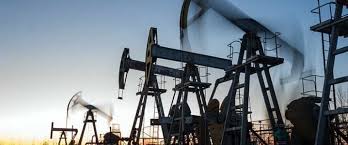Despite calls from various nations to increase its output, the Organization of the Petroleum Exporting Countries (OPEC) informed the European Union (EU) that it would be impossible to replace the volume of oil lost. Moreover, OPEC members would not produce more with the ongoing Balkan Crisis.
OPEC representatives made the statement on Monday, April 11th, during talks with EU representatives in Vienna, Austria.
OPEC Secretary-General Mohammad Barkindo explained that his organization sees a loss of over 7 million barrels per day (bpd) in Russian crude oil and liquid exports from the country in light of the ongoing conflict. In addition, possible sanctions against Russia soon are expected. Barkindo added that it would be virtually impossible to make up for such a massive loss given the current outlook on oil demand.
At the moment, the EU has already banned coal imports from Russia, and it looks like Russian oil could be next. According to foreign ministers from Ireland, Lithuania, and The Netherlands, EU officials draft proposals for an oil embargo against Russia. However, there is, as yet, no agreement regarding a total ban on Russian crude.
Indeed, EU member nations are torn regarding such a ban as many of them are highly dependent on Russian oil for powering commerce and industry.
Elsewhere, Australia, Canada, and the United States have already banned the purchase and import of Russian oil. Yet, it can be argued that these nations are much less reliant on it than others.
Insistence on a Global Scale
Despite OPEC’s statement, EU representatives continued to urge oil-producing nations to find ways of increasing their output to stop rapidly escalating oil prices throughout the globe. Furthermore, they reiterated that OPEC ensures a balance in the global oil markets.
But OPEC has been obstinate in its resistance. The organization has remained deaf to calls from the US government and the International Energy Agency (IEA) to amp up its crude oil production.
As of March 2022, the price of crude oil hit a fourteen-year-high following the imposition of sanctions against Russia by the Biden administration and the IEA following its attacks on Ukraine.
But on a more optimistic note, the ongoing fuel crisis may push forward the EU’s plan to decrease its use of fossil fuels by 30% from 2015 levels by the end of the decade. This drastic reduction in crude and other fossil fuels is part of the EU’s planned policies against climate change and may cause a scramble to find sustainable long-term alternatives.















